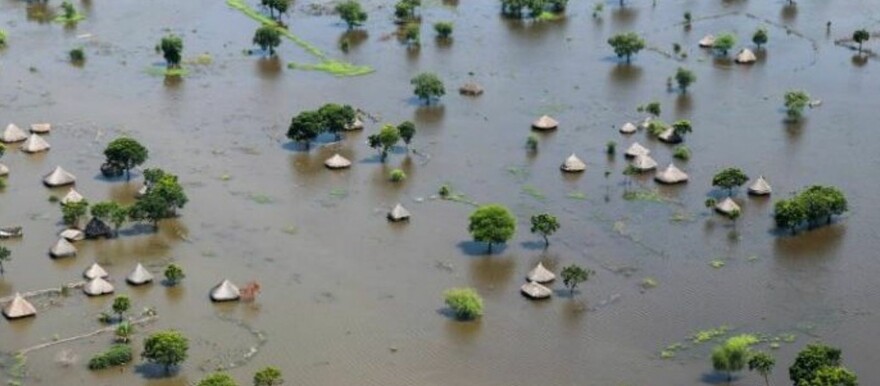A researcher from Oxford University has warned that five states in South Sudan will continue experiencing floods unless the government finds a scientific solution to the phenomena.
Deng Majok Chol, a Doctor of Philosophy (PhD) candidate at the Oxford University School of Geography and Environment, on Wednesday presented the research paper titled “Flood Mapping and Population Exposure Modelling in South Sudan” which warned of continued flooding to the National Legislature’s Council of States.
He revealed that the states of Jonglei, Lakes, Unity Upper Nile, and Warrap will have high exposure to floods due to climate change and global warming.
Majok said his research findings indicate that Jonglei and Unity states have the highest exposure to floods while Central and Western Equatoria states have the least.
According to the researcher, the findings showed that the causes of the flooding date back to the 1950s, 60s, and 70s because some of the states like Unity State are low-lying and have deep depressions which makes the area vulnerable to inundation.
He said data collection for the research started in 2019 and the research will be published in 2025.
“The results indicate that close to 2.5 million people are exposed to the worst flooding. The states of Unity and Jonglei and parts of Greater Pibor Administrative Area, parts of Lake State, and parts of Ruweng Administrative Area will continue to experience flooding,” Chol warned. “If you are part of the constituency or represent a constituency in these states, it is important to know that flooding will continue to increase in these places and the populations will continue to be exposed.”
He said the research findings are very vital because they will inform flood management decisions and disaster reduction response in the sub-region.
“Local governments, water resource and irrigation experts, the Ministry of Environment, NGOs, and other institutions that are working in the area of flooding can use it,” he explained. “So, this will inform those sorts of programs, initiatives, and projects even at the city level. Also, the Council of States as parliament, will look at this situation and look at what the population is going through and can come up with laws and regulations to oversee flood management.”
Majok recommended the construction of the Fulla Hydroelectric Dam, the Mangala Dam for agriculture at the head of the Sudd, and a reservoir on the eastern bank of Sudd in Jonglei to mitigate flooding.
“We do not want our water to go away, what we want is a solution, a solution that can allow us to stay closer to our water and these solutions are there in the Netherlands and other countries,” he said.
After the presentation, Deng Deng Akol, the speaker of the Council of States, committed the report to a select committee to scrutinize and report after seven days.




